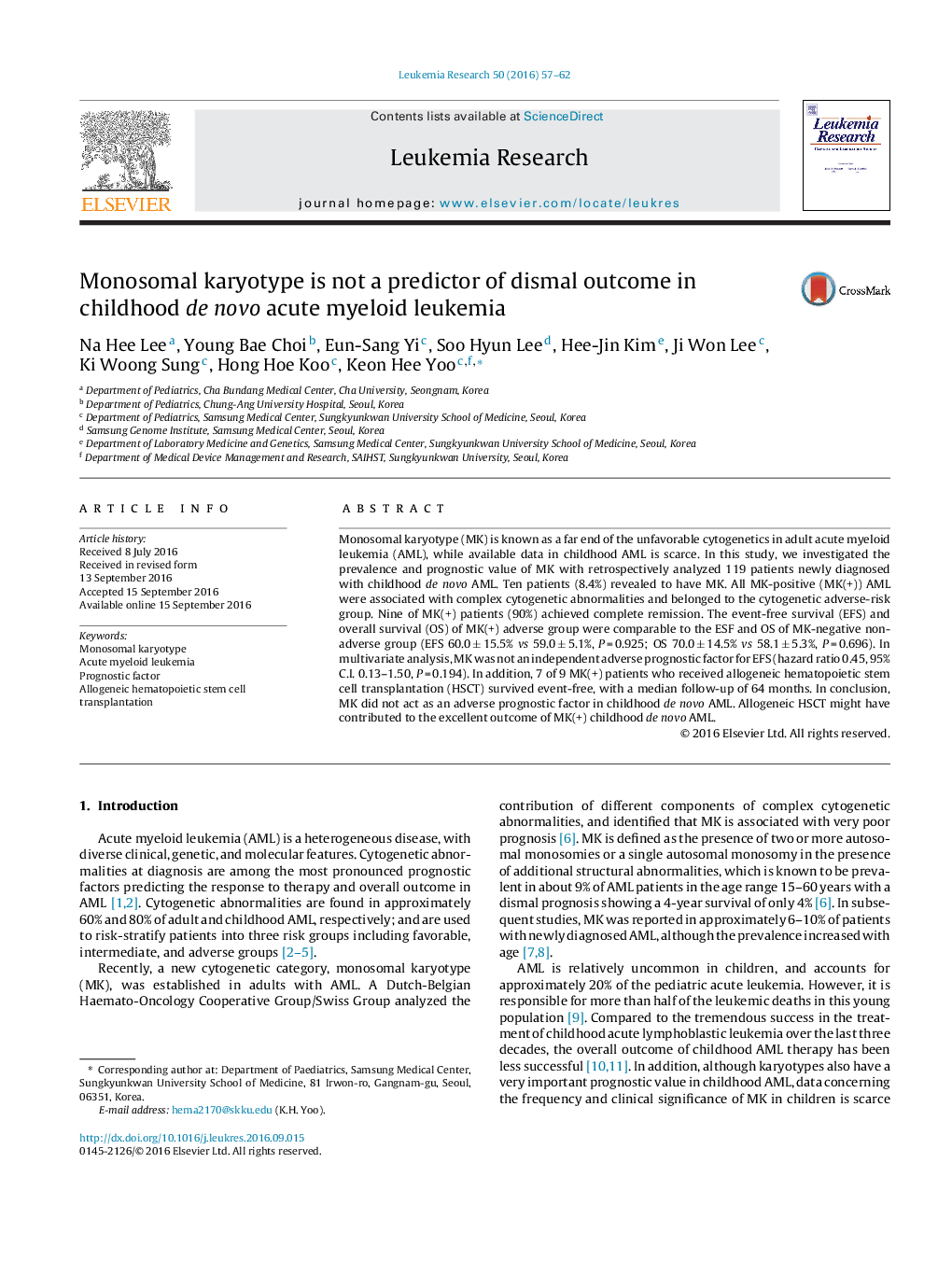| Article ID | Journal | Published Year | Pages | File Type |
|---|---|---|---|---|
| 5527848 | Leukemia Research | 2016 | 6 Pages |
â¢Monosomal karyotype (MK) accounted for 8.4% of childhood de novo AML.â¢Unlike in adults, MK is not an adverse prognostic factor in childhood de novo AML.â¢Allogeneic HSCT may have an important role in MK(+) childhood de novo AML.
Monosomal karyotype (MK) is known as a far end of the unfavorable cytogenetics in adult acute myeloid leukemia (AML), while available data in childhood AML is scarce. In this study, we investigated the prevalence and prognostic value of MK with retrospectively analyzed 119 patients newly diagnosed with childhood de novo AML. Ten patients (8.4%) revealed to have MK. All MK-positive (MK(+)) AML were associated with complex cytogenetic abnormalities and belonged to the cytogenetic adverse-risk group. Nine of MK(+) patients (90%) achieved complete remission. The event-free survival (EFS) and overall survival (OS) of MK(+) adverse group were comparable to the ESF and OS of MK-negative non-adverse group (EFS 60.0 ± 15.5% vs 59.0 ± 5.1%, P = 0.925; OS 70.0 ± 14.5% vs 58.1 ± 5.3%, P = 0.696). In multivariate analysis, MK was not an independent adverse prognostic factor for EFS (hazard ratio 0.45, 95% C.I. 0.13-1.50, P = 0.194). In addition, 7 of 9 MK(+) patients who received allogeneic hematopoietic stem cell transplantation (HSCT) survived event-free, with a median follow-up of 64 months. In conclusion, MK did not act as an adverse prognostic factor in childhood de novo AML. Allogeneic HSCT might have contributed to the excellent outcome of MK(+) childhood de novo AML.
